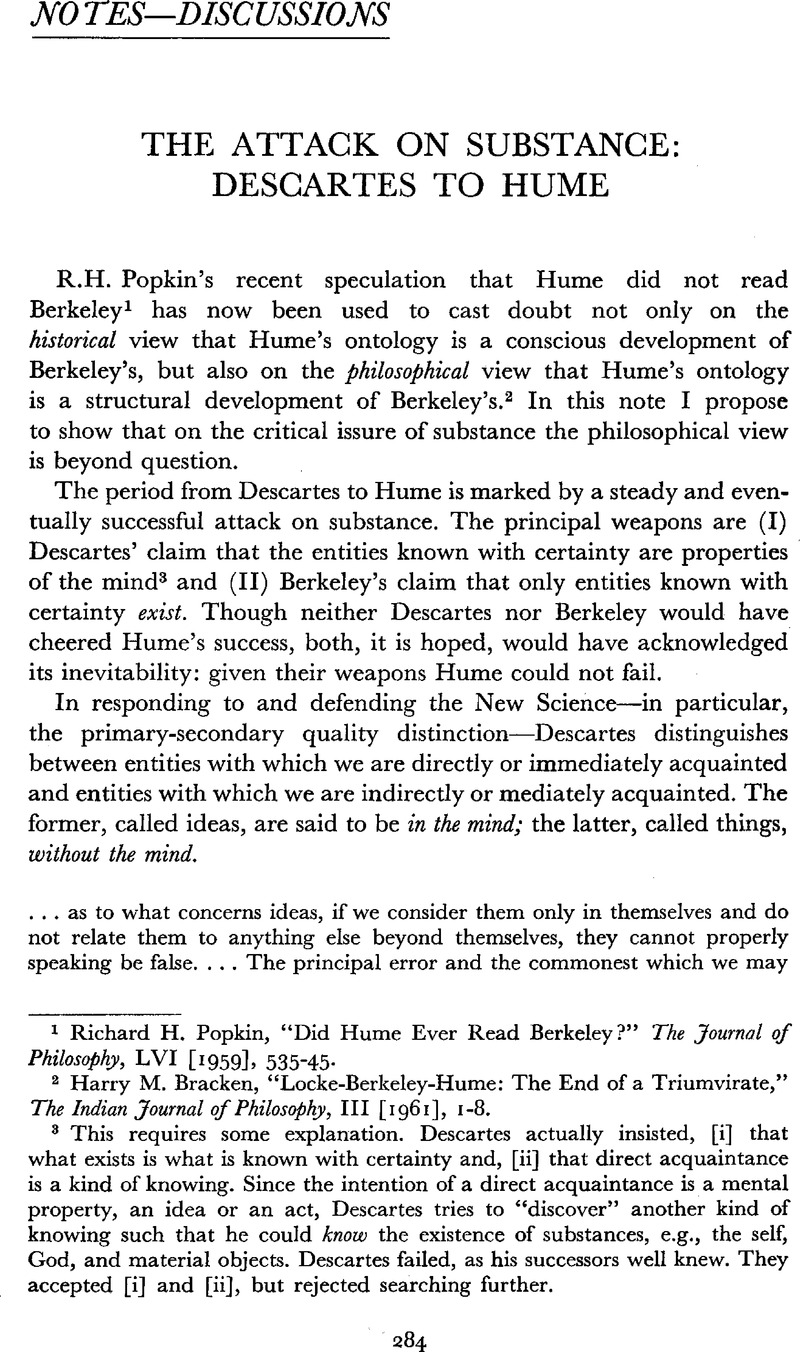Published online by Cambridge University Press: 01 December 1964

1 Popkin, Richard H., “Did Hume Ever Read Berkeley?” The Journal of Philosophy, LVI [1959]. 535–45CrossRefGoogle Scholar.
2 Bracken, Harry M., “Locke-Berkeley-Hume: The End of a Triumvirate,” The Indian Journal of Philosophy, III [1961], 1–8Google Scholar.
3 This requires some explanation. Descartes actually insisted, [i] that what exists is what is known with certainty and, [ii] that direct acquaintance is a kind of knowing. Since the intention of a direct acquaintance is a mental property, an idea or an act, Descartes tries to “discover” another kind of knowing such that he could know the existence of substances, e.g., the self, God, and material objects. Descartes failed, as his successors well knew. They accepted [i] and [ii], but rejected searching further.
4 The Philosophical Works of Descartes, ed. Haldane and Ross [Cambridge], Vol. I, 159–60Google Scholar.
5 The Works of George Berkeley, ed. Luce and Jessop [Nelson], Vol. II, 78–9.Google Scholar
6 Descartes tries to subdue scepticism by proving that the “knowledge” exemplified by the cogito enables us to know with certainty the existence of entities other than those with which we are directly acquainted. Berkeley’s doctrine of notional knowledge is thus a response to a problem similar to the one to which the cogito is a response.
7 Not surprisingly, the entities alleged to be known notionally—minds, relations and laws—are different in kind from properties. For a more detailed study of Berkeley’s ontology see “Berkeley’s Idealism,” Theoria, XXIX [1963], 229–244; reprinted in Edwin B. Allaire, etal. Essays in Ontology, Nijhoff, 1963.
8 Hume, David, A Treatise of Human Nature, ed. Selby-Bigge [Oxford], 634–5.Google Scholar